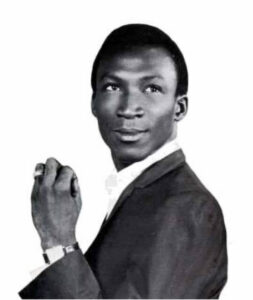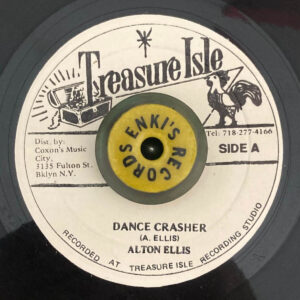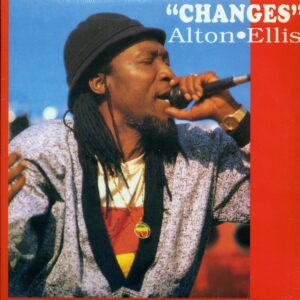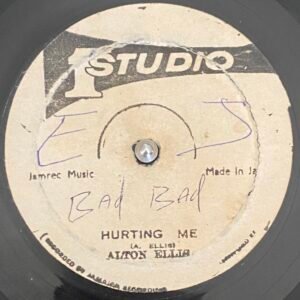Known as the “Godfather of Rocksteady,” Alton Ellis‘s impact on reggae is monumental and his timeless tunes remain essential for any vinyl collection.
Let’s dive into the life and legacy of this musical pioneer whose soulful voice helped shape the sound of modern reggae.
Alton Ellis Early Life and Musical Beginnings

Born Alton Nehemiah Ellis in 1938 in Kingston’s Trenchtown, Jamaica, Ellis grew up in a musically gifted family. From a young age, he learned to sing and play the piano—often practicing a local youth center at night.
His early passion led him to form the duo Alton & Eddie with Eddie Parkins during his teens. After winning a prominent talent show in 1959, they scored a hit with the single “Muriel,” cementing Ellis’s presence on the Jamaican music scene.
Not long after, Parkins pursued a solo career in the U.S., making Ellis embark on a solo journey that would soon revolutionize reggae.
The Birth of Rocksteady and Career Highlights
Throughout the early 1960s, Ellis recorded primarily for Coxsone Dodd’s Studio One label, releasing rhythm and blues-inspired tracks that laid the groundwork for his rocksteady sound. Seeking greater creative freedom, he moved to Duke Reid’s Treasure Isle label in 1965, where he formed the vocal trio The Flames with his brother Leslie and other singers.

It was here that Ellis scored hits like “Dance Crasher,” a plea for peace, and the groundbreaking “Get Ready – Rock Steady.” This track arguably became the first rocksteady single(*), born out of necessity when the bassist didn’t show up for a session. Keyboardist Jackie Mittoo took over bass duties but slowed the tempo, creating a new choppier rhythm that defined the genre and allowed Ellis’s voice to stretch expansively.
(*) Other candidates for the first rocksteady single include “Take It Easy” by Hopeton Lewis, “Tougher Than Tough” by Derrick Morgan and “Hold Them” by Roy Shirley.
Ellis went on to have numerous hits in 1966 such as “Cry Tough” and “Girl I’ve Got a Date,” the latter becoming his signature song. He also recorded memorable duets with prominent artists like Phyllis Dillon and his sister Hortense Ellis, further establishing him as a leading voice in Jamaican music.
Expanding Influence and Later Years
By the late 1960s, Ellis worked both with Studio One and Treasure Isle, bridging a rare gap between the two top Jamaican labels. His 1970 album Sunday Coming featured his soulful talents alongside more socially conscious and spiritual themes. Despite his success, he struggled financially and spent time in the U.S. and Canada before settling permanently in England in 1973.
In England, Ellis founded the Alltone record label and store, continuing to produce new material and reissues of his early classics. Ellis remained a beloved pioneer who made triumphant returns to Jamaica’s Reggae Sunsplash Festival in the 1980s. He recorded “Man from Studio One” in 1991 as a tribute to his early mentor, Coxsone Dodd.
Despite health issues later in life, including treatment for lymphoma, Ellis continued to tour Europe and record into the 2000s. He passed away in London in October 2008.
Why Is Alton Ellis Important to Reggae?
Ellis’s influence on reggae is profound, as many reggae artists and producers drew inspiration from his pioneering work in rocksteady. Songs like “Rocksteady,” “I’m Still in Love,” and “Girl I’ve Got a Date” are not just classics; they are blueprints for the genre, inspiring countless covers and versions by artists around the world. His style bridges the joyous energy of ska and the deeper rhythms and messages of reggae, offering a crucial link in the music’s evolution.
Cover image from altonellis.com






